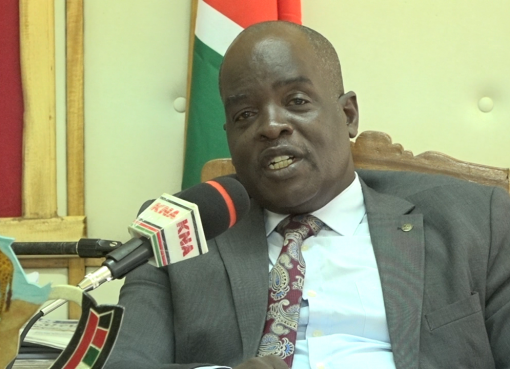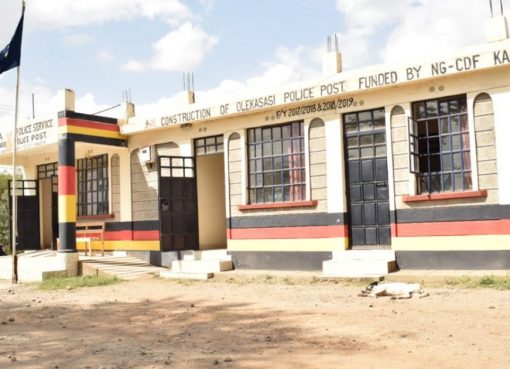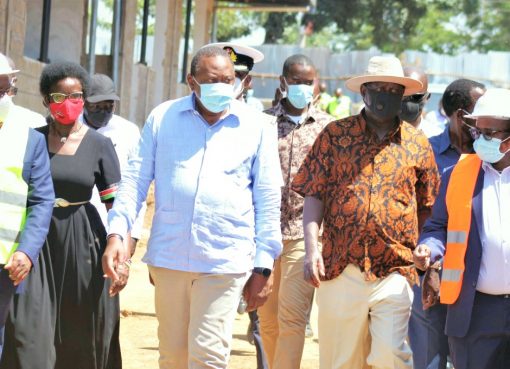The prevalence of Genital Mutilation (FGM) in West Pokot County has decreased to 44%, against the Kenya Demographic Survey of 2019 report, which placed the same at 74 per cent.
Speaking during celebrations to commemorate the International Day of Zero Tolerance for the Female Genital Mutilation 2024 at Nakuyen village in Kacheliba Constituency, the county Governor’s spouse Scovia Kachapin, said the reduced figures were a positive indication that indeed some substantial progress had been made against the vice in the region.
Emphasising the importance of advocating for a policy of complete intolerance towards FGM, Mrs. Kachapin highlighted that FGM is a harmful practice which is deeply rooted in cultural beliefs and poses a significant threat to the rights and dignity of innocent girls and women.
The governor’s wife disclosed that victims and survivors of FGM in the region were enduring a distressing existence filled with fear and anguish, and many of them were afraid to seek help from the relevant authorities and institutions.
However, she encouraged such victims not to remain frightened but rather to come forward and seek any necessary support.
Mrs. Kachapin urged stakeholders dedicated to the fight against FGM to unite in their efforts to combat the harmful practice and explore strategies to challenge the deeply ingrained cultural norms and beliefs that sustain it in the region.
‘‘How do we ensure zero tolerance towards FGM? It begins with each and every one of us,’’ she stated.
The governor’s spouse stressed that through collaborative efforts and promoting education, the stakeholders involved in eradicating FGM can empower communities with information and allocate resources to put an end to the detrimental tradition.
‘‘Zero tolerance necessitates the strengthening of laws and policies to ensure justice for FGM victims and survivors,’’ she stressed.
The governor’s wife stated that the county government is committed to offering all-encompassing support services, such as healthcare, counselling, and legal aid, to individuals impacted by FGM.
She also underscored the need to address the root causes of FGM, such as gender inequality, poverty, and lack of access to education and healthcare, which were crucial in combating the vice.
Ms. Kachapin urged all individuals and stakeholders to unite and speak up, taking resolute measures to guarantee a world where every girl and woman can live without the threat of FGM.
Mercy Tumko, a project officer at the Village Enterprise, which is an organisation dedicated to raising awareness about the detrimental consequences of FGM on women and girls, told the press that many girls who have undergone the brutal practices are unable to come forward due to their genuine concern for their safety and well-being.
Ms. Tumko noted that cultural norms and beliefs have been cited as a driving force behind the increasing prevalence of female genital mutilation.
She noted that there are some instances where parents would be found to have compelled their daughter to undergo the brutal practice in order for them to secure early marriage so that they could get dowry that would cushion their economic hardships.
Tumko said that when girls undergo FGM, many of them are forced to abandon their education prematurely.
She urged parents to create a nurturing environment for their children’s development, devoid of any harmful practices such as FGM.
She said that the unlawful practice continues to pose a significant danger to young girls residing in remote regions of the county.
The stakeholders against violations of children’s rights observed that, despite the ongoing efforts to combat Female Genital Mutilation (FGM), there has been a substantial decrease in the number of cases, from 74% to 45%, in the county.
Many stakeholders in the region have taken the initiative to educate parents in the affected regions, aiming to completely eradicate this practice.
According to Ms. Teresa Cheptoo, the World Vision project officer for the Gilr Child promotion project in the county, the areas where cases of FGM and early marriages are still prevalent include parts of the North Pokot, Central Pokot, and Pokot South sub-counties.
Cheptoo emphasised the necessity of persuading boys, men, and women to forsake detrimental customary customs and embrace alternative initiation ceremonies for girls instead of resorting to FGM.
By Anthony Melly





